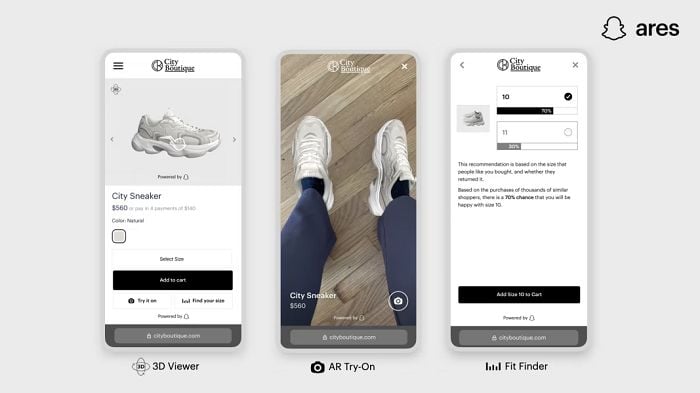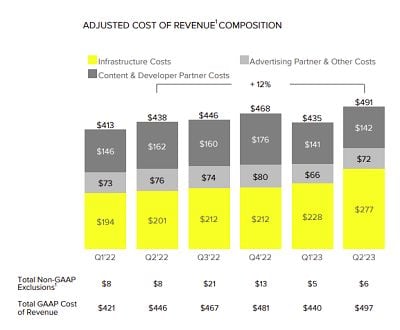This is surprising. Snap Inc. has announced that it’s shutting down its Augmented Reality Services for Business (ARES) platform, less than six months after launch, in order to refine its focus on other key areas.

Snap’s ARES platform enables businesses to utilize Snap’s AR tools within their own apps and activations, with a focus, in particular, on enabling retailers to incorporate Snap’s AR technology into in-store displays.
But according to Bloomberg, the project has proven too costly to support, so it’s shuttering the entire division, resulting in the loss of 170 jobs.
As explained by Snap CEO Evan Spiegel:
“Several things have changed since we first began pursuing our AR Enterprise strategy. First, we believed that we could primarily leverage our existing mobile AR technology. Over time, we also learned that we needed to invest incrementally to support web-based augmented reality, which is both technically complex and less-engaging for our customers. Second, the advent of generative AI has made it easier for companies of all sizes to create try-on experiences for their customers and made it harder for us to differentiate our offering. Third, our business performance has reduced our capacity to invest in this incremental opportunity as we have had to focus our resources on our core advertising business.”
Snapchat has faced various challenges in growing its ad business, with the platform hit particularly hard by Apple’s iOS 14 update, which has seen many Snap users restrict their data, thus limiting its expanded ad targeting capacity. The broader economic downturn has also reduced overall digital ad spend, which has forced Snap to reassess and rationalize its efforts to reduce ongoing exposure.
Snap culled over 1,000 jobs in August last year, and clearly, it’s still feeling the pinch, with these additional redundancies set to slim the company down even further, as it looks to the next stage.
Though its ARES program did appear to have potential.
Snap’s AR platform is market-leading in many respects, and on-selling that to partners seemed like a great opportunity for Snap to both boost brand awareness, and enhance relationships, while also providing new ways for brick-and-mortar businesses to lean into the latest tech shifts.
Though as Spiegel notes, generative AI is already providing new opportunities on this front, which has seemingly reduced Snap’s opportunity, and maybe that alone was enough to cancel out the offering.
Snap says that it’ll continue to support its CameraKit partners, providing another way to integrate its AR tools in third party apps, while it’ll also look to expand its Sponsored AR business to boost its leadership in the space.
But it does seem like a step back for Snap, which had shown some positive signs in its most recent earnings report. Though its infrastructure costs did jump significantly.

Those added costs have evidently been stacking up, and now, Snap will reduce its development and labor expenses, by stepping back from the project.
Will that impact the company’s overall AR development? It’ll surely have some impact, and it’ll be interesting to see how Snap’s performance looks in its coming updates.



